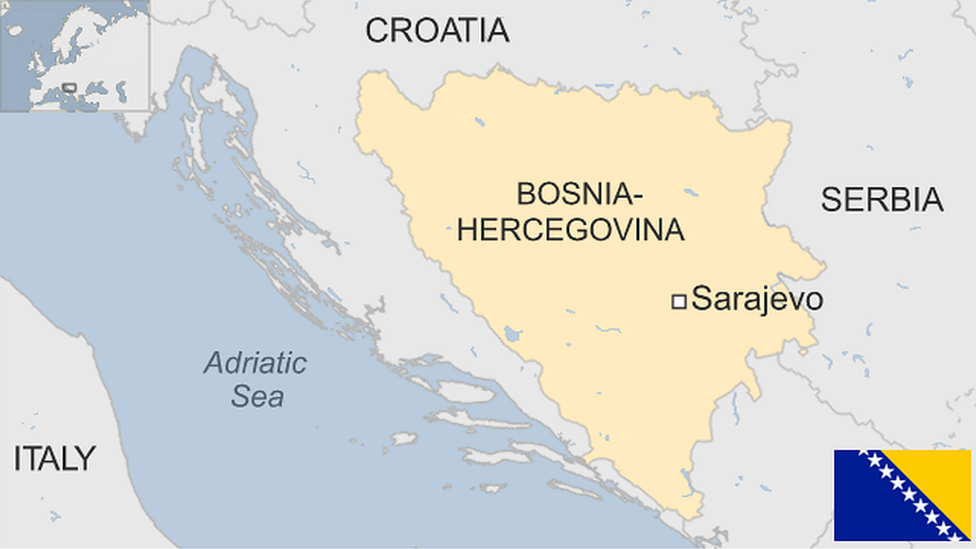Bosnia-Hercegovina protests break out in violence
- Published
Journalist Sead Numanovic says "poverty and injustice" are fuelling the protests
Demonstrators in Bosnia-Hercegovina have set fire to government buildings, in the worst unrest since the end of the 1992-95 war.
Hundreds of people have been injured in three days of protests over high unemployment and perceived inability of politicians to improve the situation.
Police used rubber bullets and tear gas to quell unrest in the capital Sarajevo and the northern town of Tuzla.
Black smoke could be seen coming from the presidency building in Sarajevo.
Sarajevo-based newspaper Dnevni Avaz says police used water to disperse the protesters who were throwing stones at the building. There were also reports of an attempted storming of the office.
On Thursday, clashes between police and demonstrators in Tuzla injured more than 130 people, mostly police officers.
"People protest because they are hungry, because they don't have jobs. We demand the government resign," Nihad Karac, a construction worker, told the AFP.
About 40% of Bosnians are unemployed.
The unrest began in Tuzla earlier in the week, with protests over the closure and sale of factories which had employed most of the local population.
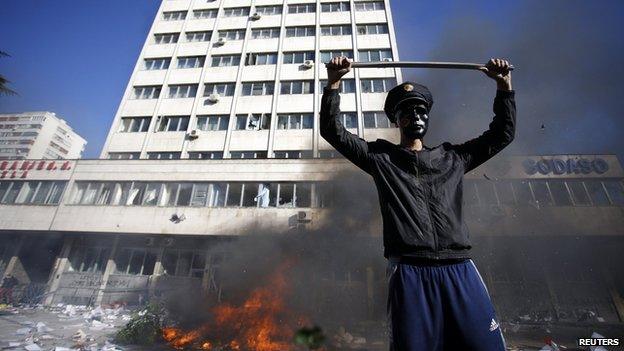
Protesters in Tuzla vented their anger on a local government building
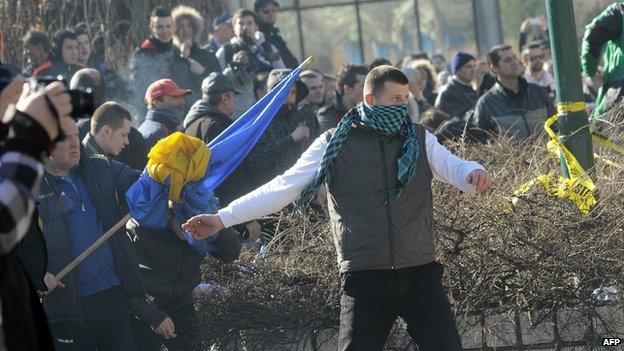
In Sarajevo, demonstrators threw stones at government buildings
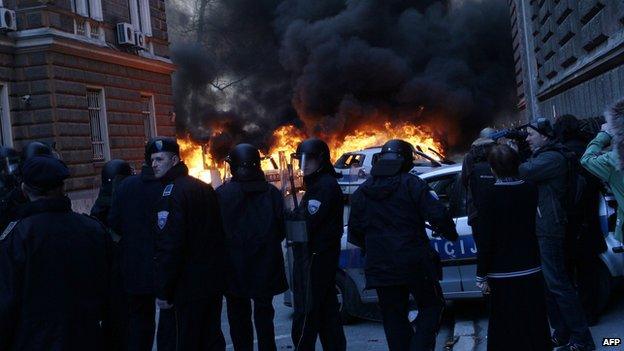
Police try to hold off protesters as fires rage in Sarajevo
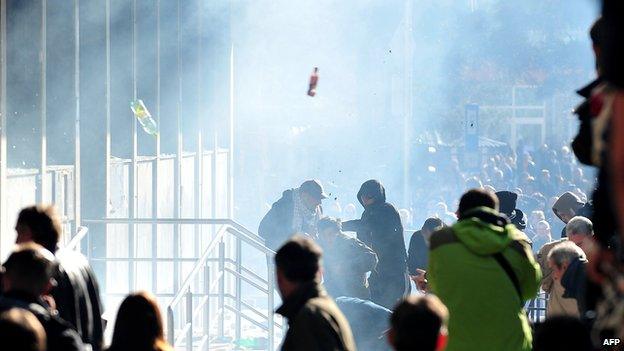
Tuzla protesters also hurled missiles at a government building
Demonstrators in other towns, including Mostar, Zenica and Bihac, supported the Tuzla workers and criticised the government for failing to tackle the rampant unemployment.
Hundreds of people also gathered in support in the Bosnian Serb capital, Banja Luka.
Local media are reporting that the premiers of two of Bosnia's cantons - Sead Causevic of Tuzla canton and Munib Husejnagic of Zenica-Doboj canton - are to resign.
'Exasperation'
The BBC's Balkans correspondent Guy De Launey says exasperation at years of inertia and incompetence in Bosnia is at the root of the protests.
Bosnia-Hercegovina is made up of two separate entities: a Bosniak-Croat Federation of Bosnia and Hercegovina, and the Bosnian Serb Republic, or Republika Srpska, each with its own president, government, parliament, police and other bodies.
The complex administrative framework and deep divisions have led to political stagnation and vulnerability to corruption.
The current chairman of the Bosnian presidency, Zeljko Komsic, said that politicians were to blame for the protests.
The problem "has been accumulating for several years, but the situation now escalated," he told FTV.
He was also quoted as saying he would be calling an urgent meeting of the top leadership.
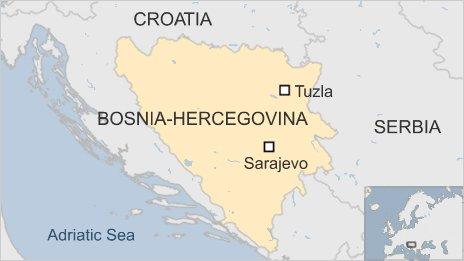
- Published7 February 2014
- Published3 September 2013
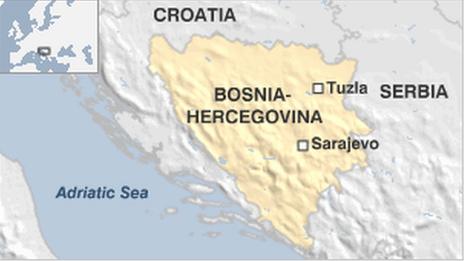
- Published10 June 2013
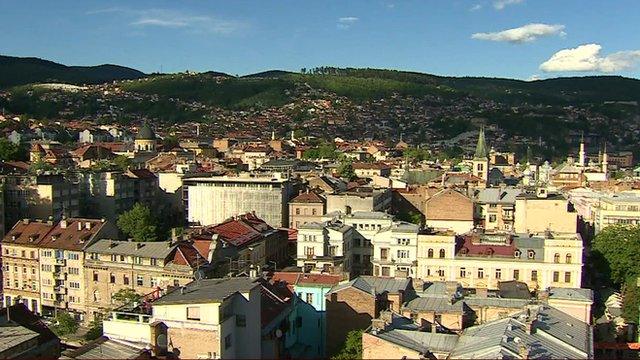
- Published4 March 2013
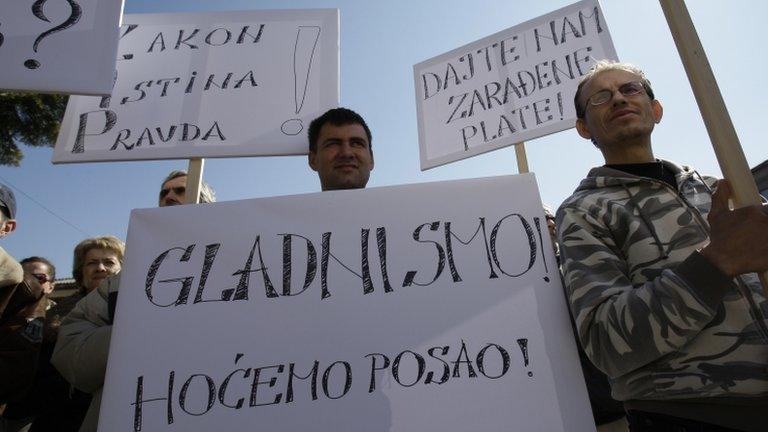
- Published7 February
